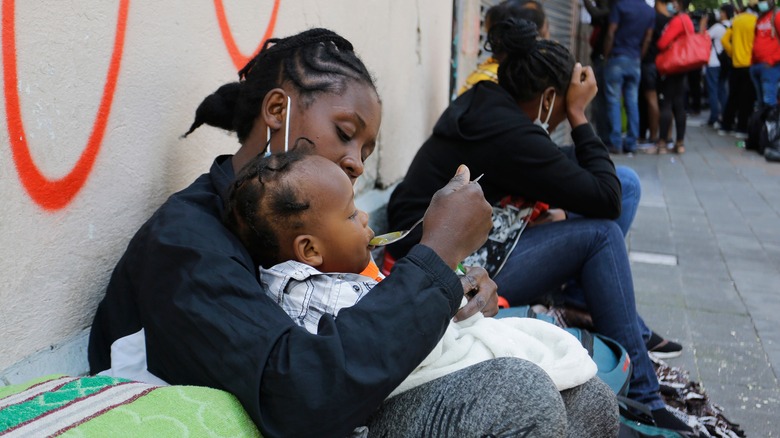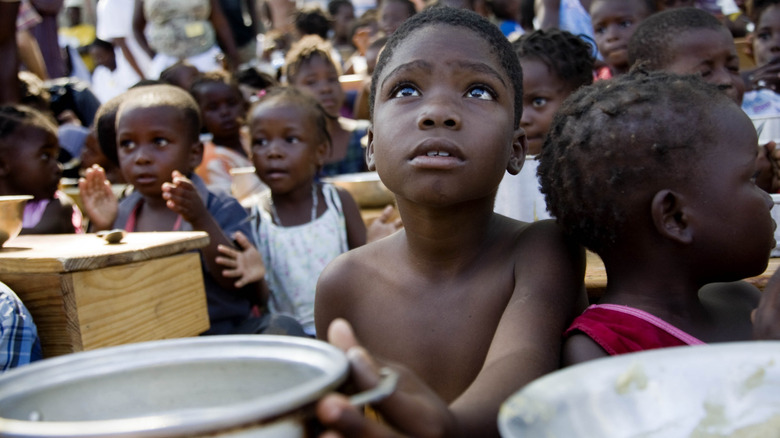The UN Cuts Haiti Food Funding As Nearly 5 Million Go Hungry
The United Nations announced today that it is facing a substantial 25% reduction in funding for its World Food Program (WFP) that will greatly impact food assistance in Haiti, affecting 100,000 people this month alone. In a country of roughly 11 million people, Haiti has the second-highest per capita rate of emergency-level food insecurity, which has left 4.9 million hungry daily.
Political unrest, increased criminal gang activity, and a never-ending stream of severe weather disasters have left half the nation in need of ongoing humanitarian aid; at the same time, donor fatigue and global budget cuts have decreased monetary support that the U.N. relies on to succeed in their missions. The WFP aims to support 2.3 million Haitians in 2023, but organizers say the program is only 16% funded halfway into the year. It must raise $121 million before 2024, or another 750,000 Haitians will go hungry this year.
The cuts come during at a time of record levels of malnutrition that are being reported, with 30% more children under the age of five-years-old struggling to eat compared to this time last year. Often, school-aged children receive their only hot meal of the day at school thanks in large part to the work of the WFP, which has fed nearly half a million children this year. Without much-needed financial support for the program, those children may no longer have access to the meal going forward.
The factors that led to the crisis and ways to help
Since the catastrophic 7.0-magnitude earthquake in 2010 that displaced millions of Haitians and threatened a cholera epidemic, coupled with additional ongoing crises like floods, hurricanes, drought, tropical cyclones, and violence, all of it has stalled any progress towards Haiti rebuilding itself. Since that event, Haiti has endured the effects of Hurricane Matthew in 2016, the assassination of former president Jovenel Moïse in July 2021, as well as heavy flooding and a 4.9-magnitude earthquake this year alone.
This borage of disasters has also caused an increase in gang activity, with organized crime now controlling 80% of Port-au-Prince, causing increased violence and food resources from reaching the most vulnerable populations. Because of this, half of the community of farmers are unable to sell their crops, slowing trade nationwide.
This bottleneck has led to a 200% increase in the price of foods like black beans, cooking oil, maize, and rice, all national food staples. The U.S. Agency for International Development reports that Haitian households are spending up to 75% of their income on food, an untenable situation causing starvation, child labor, lack of education, underaged forced marriages, and fear that has forced Haitians to flee the nation. As the Republic of Haiti's currency, the gourd, depreciates further, the country's most talented and qualified people are relocating, also threatening Haiti's long-term development.
Anyone interested in assisting the relief efforts can donate to vetted humanitarian organizations like José Andrés' World Central Kitchen, found at interaction.org. USAID suggests monetary donations because they are quicker and more efficient than donating goods.


